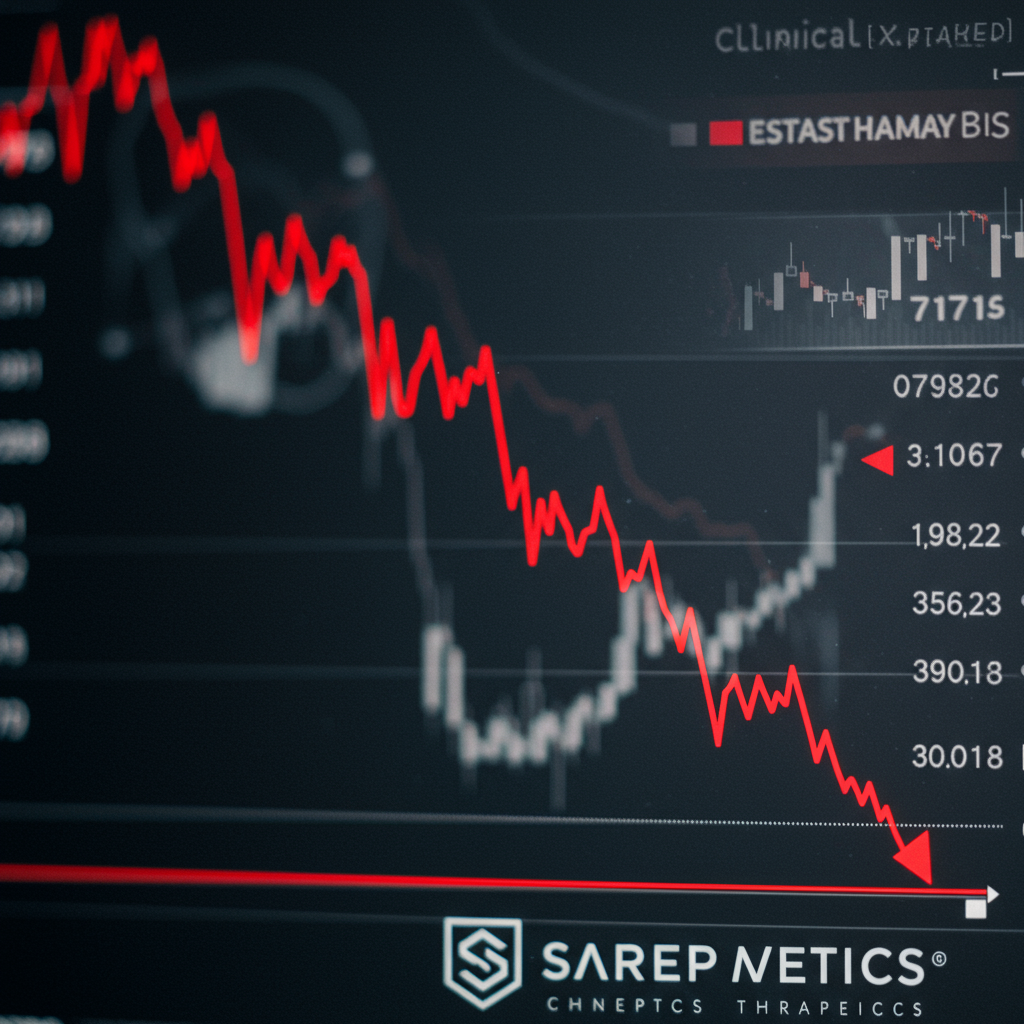Biotech firm Sarepta Therapeutics has announced a significant pause in its clinical trial and distribution protocols for Elevidys (SRP-9001), its approved gene therapy targeting Duchenne muscular dystrophy (DMD). The action follows the death of a second patient who received the treatment, marking another serious safety event for the therapy that had received accelerated regulatory approval.
Sarepta’s stock saw a sharp decline of over 40 percent following the disclosure of the second fatality. The company stated it would temporarily stop shipping Elevidys for certain patients and halt dosing in a key clinical trial while it evaluates safety measures.
Second Patient Death Linked to Gene Therapy
The Cambridge, Massachusetts-based company reported that the second patient died from acute liver failure. This adverse event is a recognized, though typically manageable, risk associated with adeno-associated virus (AAV)-based gene therapies, which are commonly used as delivery systems.
Crucially, both patients who died were non-ambulatory, meaning their DMD had progressed to the stage requiring wheelchair use. The second patient fatality occurred in a 15-year-old enrolled in the Phase III ENVISION study, a trial designed to serve as the confirmatory study required to potentially convert Elevidys’ accelerated FDA approval to a full approval. Sarepta had previously reported the first patient death, also linked to acute liver injury, in March, noting at the time the severity was unprecedented for the therapy.
Sarepta’s Response and Safety Measures
In light of the second death, Sarepta is implementing several immediate measures. The company is suspending its 2025 revenue guidance and plans to issue an updated forecast later. More critically for patient safety and clinical progress, Sarepta has paused dosing in the ENVISION trial. This temporary freeze allows the company to assess the recent event and implement potential amendments to the study protocol, specifically focusing on enhancing the immunosuppressive strategy used alongside the gene therapy.
Additionally, Sarepta has halted shipments of Elevidys specifically for non-ambulatory patients. The company is collaborating with an independent group of experts to evaluate and finalize an enhanced immunosuppression regimen tailored for this patient population. Sarepta leadership indicated they plan to discuss updating the Elevidys protocol with the FDA, potentially incorporating the immunosuppressant Sirolimus, while acknowledging Sirolimus carries its own risks, such as increased infection vulnerability. The company expressed intent to move quickly and engage with the DMD patient community.
Broader Implications for Gene Therapy
The incident underscores ongoing challenges facing the gene therapy field, particularly regarding the unpredictable nature of serious toxicities associated with AAV delivery. Acute liver injury is a known side effect, and companies are continuously working to optimize immunosuppression strategies to mitigate these risks.
Analysts provided mixed perspectives on the fallout. While some noted that acute liver failure is a recognized AAV risk, the second death raises significant concerns about Elevidys’ sales outlook, particularly for the non-ambulatory population. However, many anticipate the market for ambulatory patients, who make up a significant portion of the current approved indication, will likely remain largely intact.
The safety events, including other recent instances in the field involving different gene therapies for conditions like Danon disease and Rett syndrome, could potentially increase regulatory scrutiny and uncertainty for investigational gene therapies moving forward. Sarepta has expressed sorrow over the patient loss and reiterated its commitment to the mission of developing therapies for devastating diseases like DMD, aiming to resume clinical activities safely.


